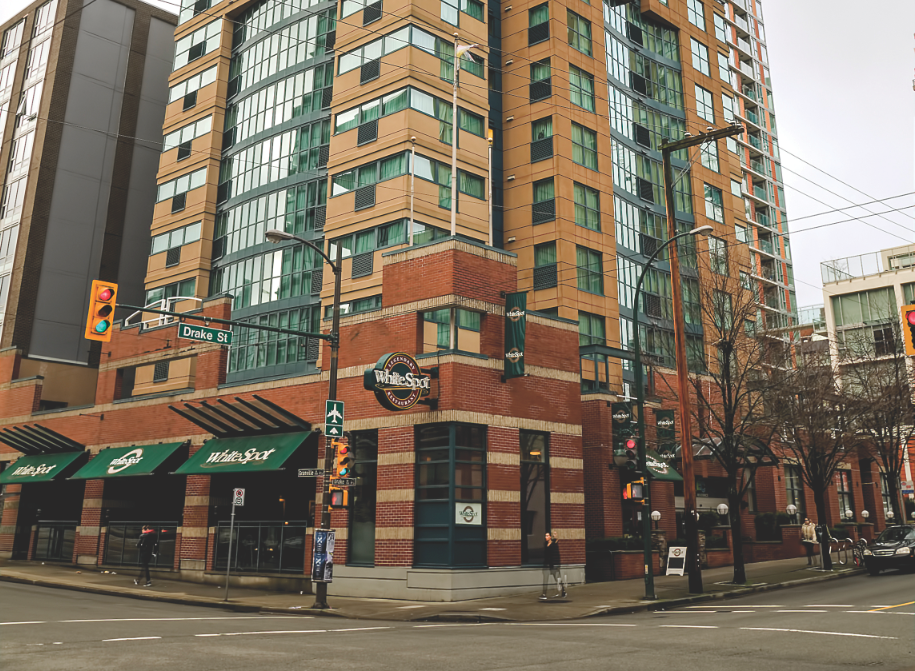Recent hotel acquisitions reveal two trends: hotel management company consolidation and targeted real estate buys by businesses that own niche hotels.
Marriott International Inc. CEO Arne Sorenson explained during a January 11 visit to Vancouver that the first of the trends is driven largely by a desire for a bigger bang for the buck when it comes to technology spending.
His hotel management company (Nasdaq:MAR) announced in November that it plans to buy Starwood Hotels & Resorts Worldwide Inc. (NYSE:HOT) for US$12.2 billion in a deal that still needs shareholder and regulatory approval.
That followed Marriott buying Delta Hotels and Resorts from British Columbia Investment Management Corp. for $168 million earlier last year.
Sorenson joked that it would be impossible to take Marriott back to the days when a guest could sign a register book and be given a physical key to a room.
Technology today includes everything from the encoded plastic cards that guests use to access their rooms to billing, marketing and other systems that can monitor maintenance. Consolidating that technology across different hotel chains such as Starwood and Marriott would generate significant savings.
“We could save US$200 million and put that into programs such as Starwood’s Preferred Guest and Marriott Hotel Rewards, which are customer-based programs,” Sorenson said.
He added that giving frequent guests, who are in those programs, better perks that are financed by technology savings will improve their experience and build loyalty.
Other hotel management companies have also been consolidating.

(Image: Marriott International CEO Arne Sorenson visited Vancouver January 11 and spoke at the Vancouver Board of Trade luncheon | Pablo Su)
Accor SA, in December, agreed to spend US$2.9 billion in shares and cash for FRHI Holdings Ltd., which owns brands such as Fairmont, Raffles and Swissôtel.
Both Accor and Marriott own some hotels but are primarily management companies.
Sorenson told Business in Vancouver that Marriott operates approximately 1,400 hotels worldwide but owns only five.
Owning the real estate, he said, uses up valuable capital and is best left to local entrepreneurs.
Hotel real estate buyers often are niche players
Recent hotel real estate acquisitions have not generated the same multi-billion-dollar price tags as hotel management sector consolidations.
Instead, real estate acquisitions tend to be largely one-off deals.
Some of those transactions are eye-popping and highlight demand for real estate in Vancouver.
Concord Pacific Developments’s decision to pay $290 million to buy the Westin Bayshore Resort and Marina from an affiliate of U.S. investment firm Starwood Capital Group in September falls into that category.
Many of these transactions, however, are made by companies that have tight niches within the hospitality sector.
Vancouver’s CIBT Education Group (TSX:MBA), for example, has been buying Vancouver hotels to house its international students.
The owner of Sprott Shaw College spent $37 million to buy and renovate the Viva Suites Hotel, at the corner of Howe and Drake streets, in early 2015 and then about $40 million to buy the nearby Best Western Plus Downtown Vancouver hotel at 718 Drake Street in November.

(Image: CIBT Education Group spent $40 million to buy the Best Western Plus Downtown Vancouver at 718 Drake Street in November | Chung Chow)
CIBT CEO Toby Chu told BIV that he wants to buy more hotels but believes that values have crept up in terms of capitalization rates – the yield owners can expect to get from properties.
“Right now, definitely, the asking price for some of the hotels that we’re looking at are on the upper side.”
Chu added that Vancouver’s hotel real estate could be in a mini-bubble spurred on by the low Canadian dollar, high occupancy rates and high number of conventions.
Vancouver-based American Hotel Income Properties REIT (AHIP) (TSX:HOT.UN), conversely, is buying U.S. hotels with a niche clientele: staff accommodation for railroad companies such as Union Pacific and BNSF.
AHIP has expanded rapidly since going public in February 2013. Back then, it had 32 hotels. At the start of 2015, AHIP’s hotel count had risen to 60. AHIP last month announced that it had bought its 80th U.S. hotel and 45th railway hotel: a 133-room property in Lincoln, Nebraska, for US$3.9 million.




